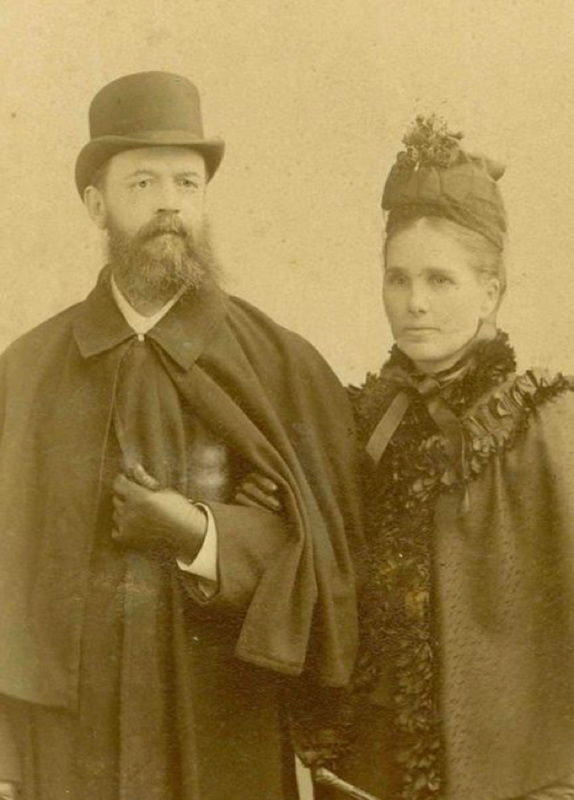|
Peter M. Friesen was born in the Molotschna Colony in South Russia in 1849. He graduated from Central High School (Zentralschule) in Halbstadt, Molotschna and completed his university education with studies in Basel, Switzerland and Moscow, Russia. Peter was baptized in the Mennonite Brethren church at age 16 but during his university years drifted away from Christianity in general and Mennonites in particular.
He and his wife, Susanna Fast, lived in Moscow until he was 35 years old when the Central High School in Halbstadt asked him to become their principal. He taught in both German and Russian with equal competence and revised their curriculum to include a teacher training institute. The Mennonite Brethren in Halbstadt without hesitation ordained Peter as one of the pastors. The next 20 years were very active ones for this visionary educator: he wrote the first Confession of Faith for the Mennonite Brethren and a one thousand page history of this pietistic Mennonite group. One of his primary goals was to heal the division that had emerged within the Mennonite community. Toward that end, he formed a relief organization called The Allianz and invited all Mennonite, Russian Pietist and Jewish congregations in the area to participate. Acts of compassion, he believed, were more important than dwelling on doctrinal differences. On the issue of baptism, for example, Friesen advocated a pluralistic stance: river baptism as practiced by John the Baptist or sprinkling which the apostle Paul practiced. His views on baptism and a willingness to seek cooperation with neighboring faiths caused quite a stir. Eventually doctrinal principles stood in the way for many and the Allianz folded. The discussions had been intense and in the end, Peter resigned from his teaching position in Molotschna as well as his responsibilities as pastor. Peter and Susanne then moved to Odessa where he served as a chaplain for students attending the university. He was highly successful in attracting students from many backgrounds to his worship services. But students were not the only ones who observed his effectiveness. Local Orthodox priests challenged him to a debate. Afterwards, Russian secret police began following him. Months passed and Peter finally wrote a letter to the Russian Orthodox Bishop clarifying his theological views and pleading for tolerance. Within weeks the secret police ended their surveillance. Under those tense circumstances, Susanna and Peter moved to Sevastopol where he again served as a chaplain for university students. He arrived at the right time; local firebrands had been stoking up anti-Semitic passions for weeks. One night Peter went to the market square where the rallies were held and listened to one harangue after another. Finally, he mounted the platform and gave an hour long impassioned defense of Jews and Judaism. When he finished, the crowd silently dispersed. When his eyesight began to fail, they returned to Molotschna and a few years later Peter passed away following a long illness. But for Susanna and their three surviving children, this was not the end of their ordeal. The troubles of the world followed them to Molotschna: Susanna and two adult children disappeared in the chaos of World War I. One son, Paul, survived the war but spent the remainder of his years in Siberia. And yet, the torch they lit by emphasizing service, education and cooperation continued to live in the hearts of many. Leader: Surely the Lord would say of Peter and Susanna Friesen, All: Well done thou good and faithful servants. Photo Source: GAMEO Sources:
|
DownloadThe Living Mirror: Archaeology of Our Faith
Archives
December 2018
|
||||||
|
* = login required
|
Visit425 S. Central Park Blvd.
Chicago, IL 60624 |
Contact |


 RSS Feed
RSS Feed
